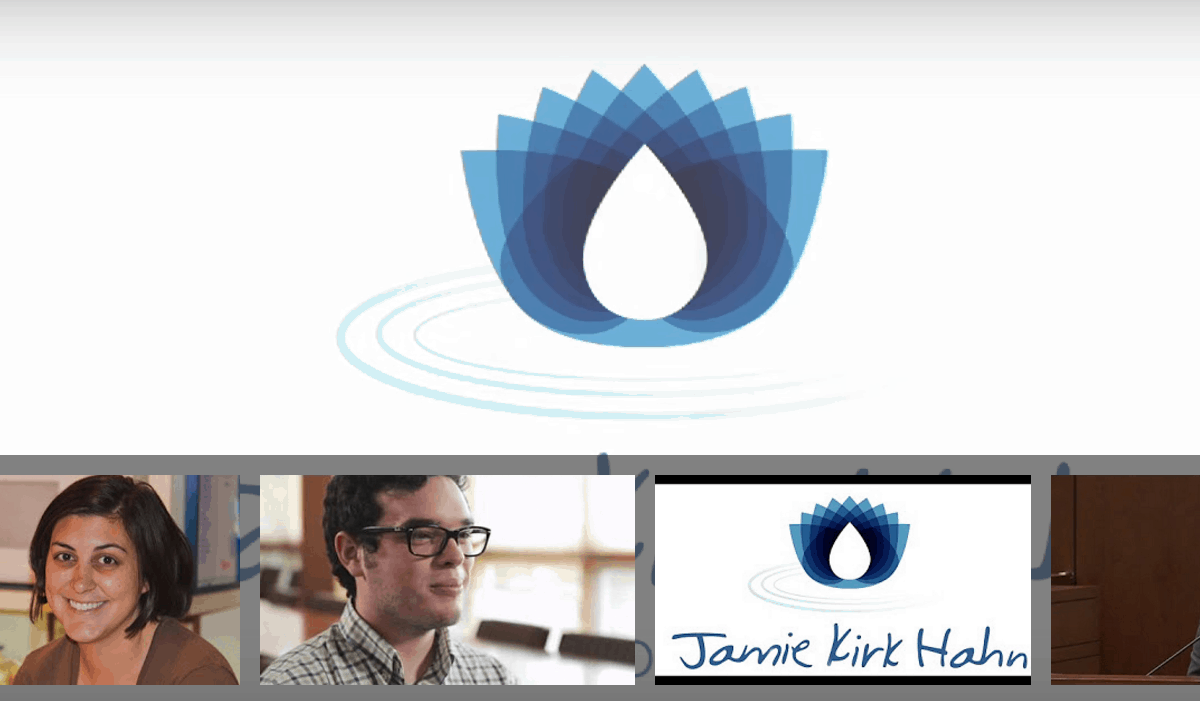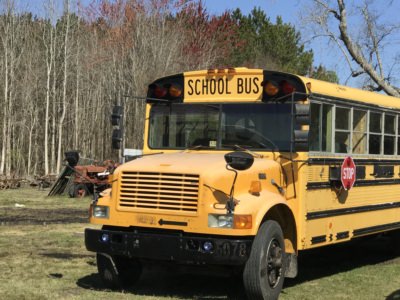
Trauma begins when your normal life is shattered.
The phone ringing, the door knocking, the scream that breaks the silence. The moment that divides life between the before and after.
The before for me was a Monday evening, a time of refuge. A time when Jamie nearly always cooked because the kitchen was her sanctuary and cooking her therapy. A time when we took long walks, or short runs, and retreated to the back porch for a drink while we waited for whatever mediocre reality television show Jamie loved to come on.
That Monday my life was shattered, along with portions of my left hand, and my entire heart.
When Jamie died, I didn’t think I would make it.
When I woke up the next morning, I can still recall the shock, the stunned feeling, that came with placing both feet on the floor in a world that was radically changed.
If you are a survivor, when your beloved wife, or child, or parent dies from an attack, then perhaps the most surprising thing in the days to come is that the sun still shines, the world still spins, and people are out living their lives as if the very foundations of the world were not shattered.
Strength
As noted writer Roxane Gay once wrote, “Surviving something doesn’t make you strong, it makes you a survivor.”
We must reframe how we think and talk about strength because it is a hard concept for survivors who feel like they must be strong… or that they must be weak… in any given moment.
Thankfully a dear friend who had lost her own husband tragically helped me break the habit of saying, “I’m doing OK.”
She told a story of walking down a grocery store aisle when a well-meaning person came up to her and asked how she was doing. She initially did the “I’m doing OK” song and dance before she realized that she wasn’t doing herself any favors, nor was she doing a person who really cared any favors either. So she looked at them and said, “I’m actually not doing well at all.” And in that truth-telling moment, she felt a sense of relief as she acknowledged the uneven existence of her own life after the loss of her husband.
This dear friend taught me that real strength can simply mean you got out of bed when the weight of the world and grief threatened to overwhelm you. Real strength can mean you managed to shower, or perhaps you didn’t, but you combed your hair and brushed your teeth. And sometimes real strength means you walked out your front door to face the world when all you wanted to do is hide.
Survival doesn’t make you strong, but surviving can lend you strength as you realize you can face the first day back to work, the first awful Christmas, the first anniversary of your loss, and you can do it day after day after day, month after month after month, year after year after year.
Which leads me to…
Resilience
T.S. Eliot once referred to April as the cruelest month. I could not connect to this idea for a long time as this month had always been a month of joy.
For one, I have never been overly fond of cold weather, so the warmer weather was always a relief. For another, it was my birthday month, and I love birthdays.
And, later, once I met Jamie, April was even more of a special occasion as she and I were married on the 18th. We also happened to be married the day before my birthday which meant a weekend full of celebration each spring.
My perception of this month forever shifted when our every day life was shattered on that April Monday in 2013.
When the calendar flips over to April now, I find myself considering the steady drumbeat of anniversaries, both the positive and the terrible, and what it means to survive, and in survival find resilience. May 1 is my New Year.
Resilience is a skill we do not know we have until we are faced with a situation where we must show it. Resilience is the capacity to recover. One definition says to “recover quickly,” but I prefer to consider resilience the ability to be knocked down, and eventually get back up — even if you require the help of many others to do so.
Resilience matters deeply.
It is important for policymakers, philanthropists, and other leaders to understand that research shows us resilience can be taught. And my day job with EducationNC has shown me that resilience both can and should be taught in our school system.
We can not protect our children from adversity, but we can help them learn how to grapple with it in their lives. They will lose someone they can’t live without, they might face illness or help a parent or friend face illness, they might bury their best friend.
We would all be happier if we could protect those we love from such experiences, but we can not, try as we might.
All of us will face such adversity, and, yes, we will all face such trauma, which is why my work, and the work of the true experts, speaks often of trauma-informed or trauma-sensitive environments.
Teaching resilience to our children will also require us to redefine how we consider trauma. Trauma is NOT a one time event; in fact, it is a response to stressful events. It alters us in many ways and the folks at the Trauma and Learning Policy Initiative have shared research that indicates how it impacts academic performance, behavior and emotion, and relationships.
If we want to support crime victims and survivors, then it is long past time that we reframe our thoughts about trauma, invest in teaching resilience, and address their combined role in the lives of our children.
Which brings me to…
Community
Echoing Mister Rogers plea for us to look for the helpers in terrible times, Jamie and I saw so many helpers the week of the attack. The neighbors who helped staunch her bleeding, made us feel safe, and thankfully remembered our words of love for one another. The emergency workers. The police. The people at WakeMed. The friends who came to the hospital and have been there for us every day since.
Our community, in my view, is defined less by geography, and more by a sense of common humanity. A sense that we’re all in this together, perhaps even by a sense of shared love, values, hopes, and dreams.
And within our community, it is important to understand that we must build community-wide solutions — together — to prevent and combat violence, to support one another if it occurs, and build resilience.
Crimes are rarely, if ever, an isolated experience. The ripples are felt collectively and across communities. We must develop community-wide solutions to help one another grapple with crime, but also do more to prevent violence in the first place.
And in a speech about the mindless menace of violence, Robert F. Kennedy reminds us, “[T]here is another kind of violence, slower but just as deadly, destructive as the shot or the bomb in the night. This is the violence of institutions; indifference and inaction and slow decay. This is the violence that afflicts the poor, that poisons relations between men because their skin has different colors. This is a slow destruction of a child by hunger, and schools without books and homes without heat in the winter.”
The essential need to build up our entire community, increase access to social mobility, and spread Jamie’s values of compassion, empathy, humility, and service also led to the launch of the Jamie Kirk Hahn Foundation, which today strives to build community-wide strategies to address the overall health and vibrancy of our community.
On this April morning, I ask that you remember her example.
Help us reframe the way our community views strength, because our survivors need a realistic understanding of what strength is and what they must do.
Call on our leaders to invest in educational environments that emphasize resilience and trauma sensitivity.
Remember that to address violence in our community, we must build community-wide solutions to our many challenges.
And, finally, remember that while Jamie died due to an act of violence, it is far better to remember how she lived.
With kindness, grace, understanding, and love at her core.
She believed, as Ram Dass wrote, “We are ultimately all just walking one another home.”
If we can recall the way Jamie lived, even on the hard days ahead, then we will find some light.
Here are Nation’s full remarks.


